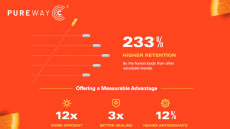Researchers warn against supplement consumption alongside prescribed heart drugs

The research – presented at the American Heart Association Scientific Sessions – reports that atrial fibrillation patients who take vitamin supplements are less likely to follow the directions on their medication, and are more likely to miss doses.
The research team, from the Intermountain Medical Center, USA, also said that doctors need to further educate patients about mixing vitamins and supplements with the highly prescribed blood thinner warfarin because vitamins and nutritional supplements can reduce the effectiveness of the drug, therefore increasing the risk of stroke.
"Vitamins are highly active substances," said Dr. Jeffrey L. Anderson, one of the researchers responsible for the findings.
"When you take a vitamin pill, you often are getting a much higher dose than you would by just eating a balanced diet. People don't realize that vitamins can be just as active as drugs, and, as we've seen here, mixing the two together can, in some cases, have adverse consequences for your health."
Anderson added that he is ‘troubled’ by the results, as they indicate that physicians “need to do a better job of educating our patients about vitamins and other supplements and how they interact with the medications we prescribe."
Study details
To learn how patients comply with their warfarin prescriptions, the research team administered a 52-item questionnaire to 100 randomly recruited patients previously diagnosed with atrial fibrillation.
Each patient had a face-to-face interview with a dietician who asked them about their knowledge of warfarin and their compliance with the prescribed regimen. They were also asked about their use of vitamins and dietary supplements.
Of the 62% who reported using a vitamin supplement, 24% admitted skipping doses of warfarin, said the researchers, who added that compared to those not taking vitamins, such patients were also found to be 2% more likely to double their dose of medication.
Anderson and his colleagues also reported that vitamin users were less aware of the potential for vitamin-warfarin interactions (37% to 30%), however the researchers said that of the most concern, they found patients who took vitamins had more episodes of unexplained bleeding, and required more non-surgical transfusions.
Vitamin risks?
Anderson said that while the use of vitamins and other dietary supplements continues to rise – especially in the USA – very few people have a good understanding of the consequences of taking them – adding that there is a common misperception that ‘if some is good, more must be better’.
"More and more studies are starting to show that excessive doses of some vitamins can increase the risk for serious diseases, including cancer," said Anderson.
"As health care providers, we need to encourage caution when it comes to taking vitamins, as with any other medications," he stressed.
The researcher said that doctors need to ask patients about their vitamin use, and that patients need to be candid with their physicians about any vitamins and other supplements they might be taking.














